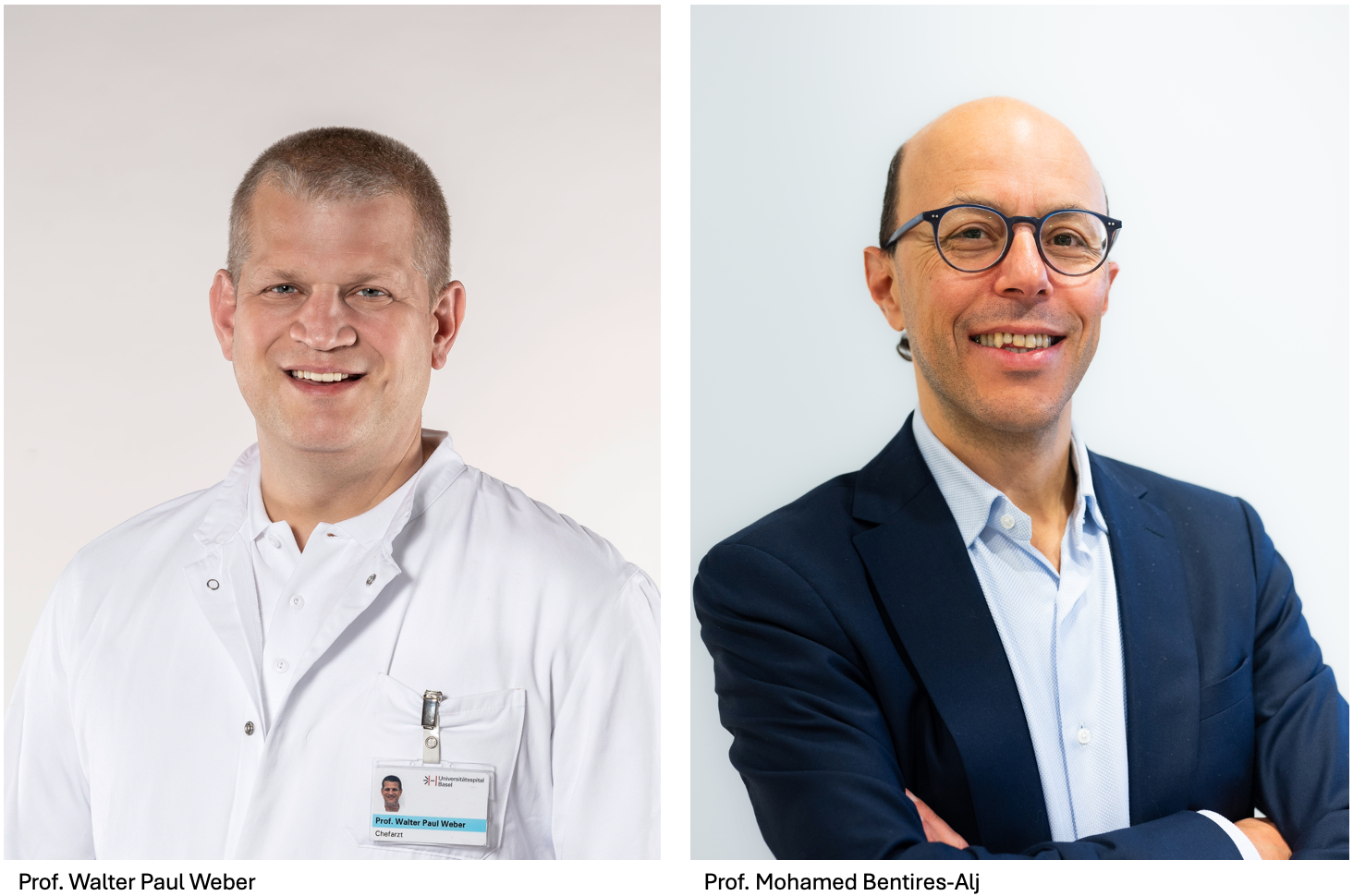Breast cancer – Prof. Mohamed Bentires-Alj (UNIBAS) and Prof. Walter Paul Weber (USB)
New biomarkers from lymph nodes for programming immunotherapy against triple-negative breast cancer

Breast cancer (BC) remains one of the leading causes of death among women, and 80% of breast cancer deaths are caused by metastatic disease. The majority of these deaths occur in hormone receptor positive patients (HR+), which constitute 80% of all diagnosed breast cancers. In these tumors, the hormone estrogen signals through its receptor to drive tumor growth. Anti-hormone therapy, also called endocrine therapy, which blocks estrogen receptor signalling activity, is the standard treatment for these tumors. Unfortunately, resistance to this therapy increases over time and nearly all HR+ BC patients become refractory to endocrine therapy, generating a large unmet clinical need for new ways to treat HR+ BC patients.
This TANDEM study addresses this urgent unmet need by aiming to identify predictive biomarkers for therapy guidance and patient selection for immunotherapy against HR+ BC. Immunotherapy represents a paradigm shift in the treatment protocols for BC. Yet, to date, it has had little efficacy against recurrent and metastatic BC.
The approaches used in the past to characterize immune therapy-related biomarkers have focused only on the tumor, and no one has checked if promising markers for immune checkpoint therapy can be detected in nearby tissues. This project will investigate the potential of identifying immunological markers in tumor-draining lymph nodes (TDLN). TDLN are the first sites at which the immune system encounters tumor antigens, and these lymph nodes help orchestrate the anti-tumor adaptive immune response. In short, this project is based on the hypothesis that biomarkers found in the TDLN at the early stages of the disease may be more effective for programming and predicting responsive immune cells.
The ultimate aim of the project is to find biomarkers in the lymph nodes near HR+ breast tumors that can indicate sensitivity or resistance to immunotherapy.

